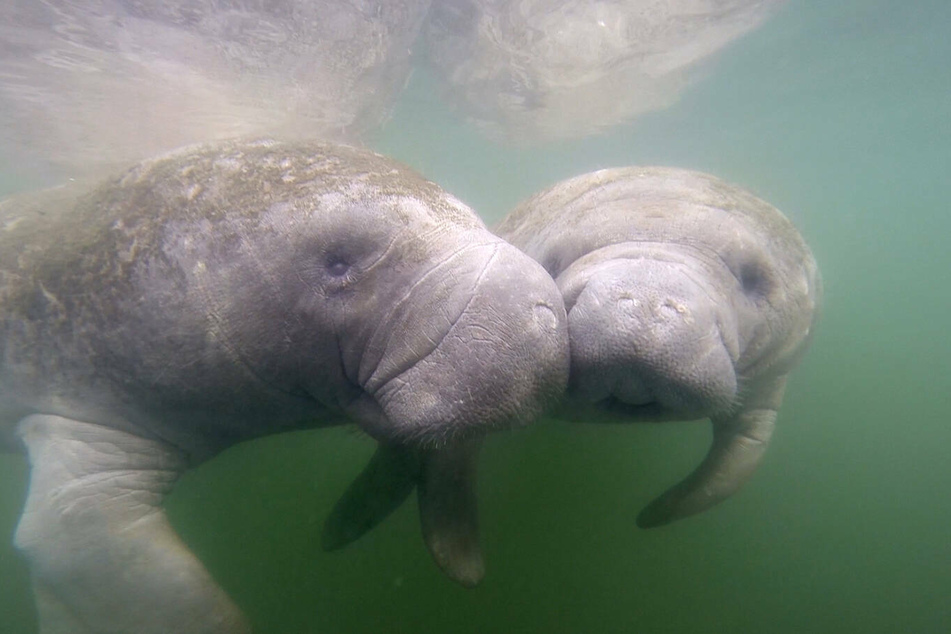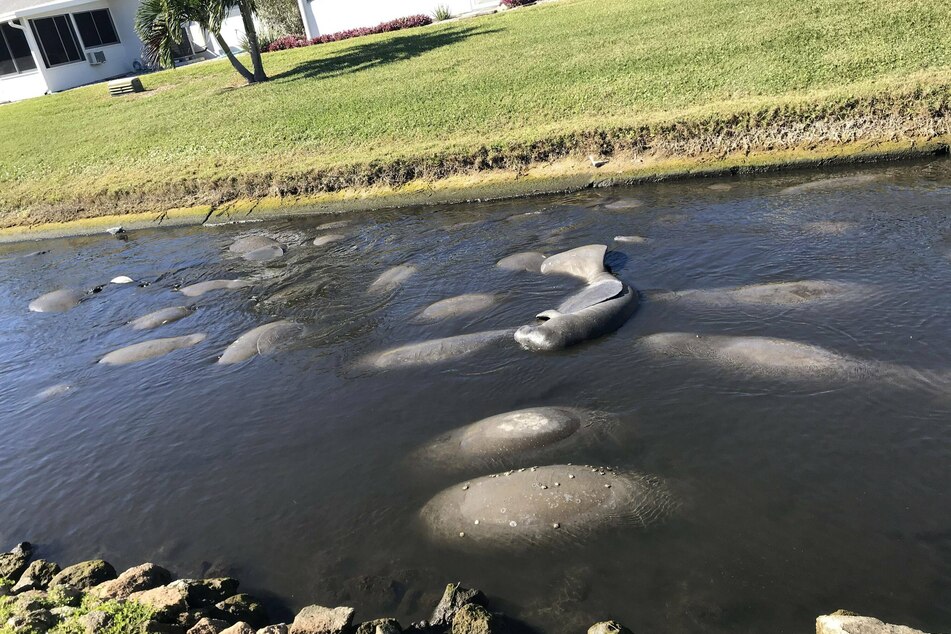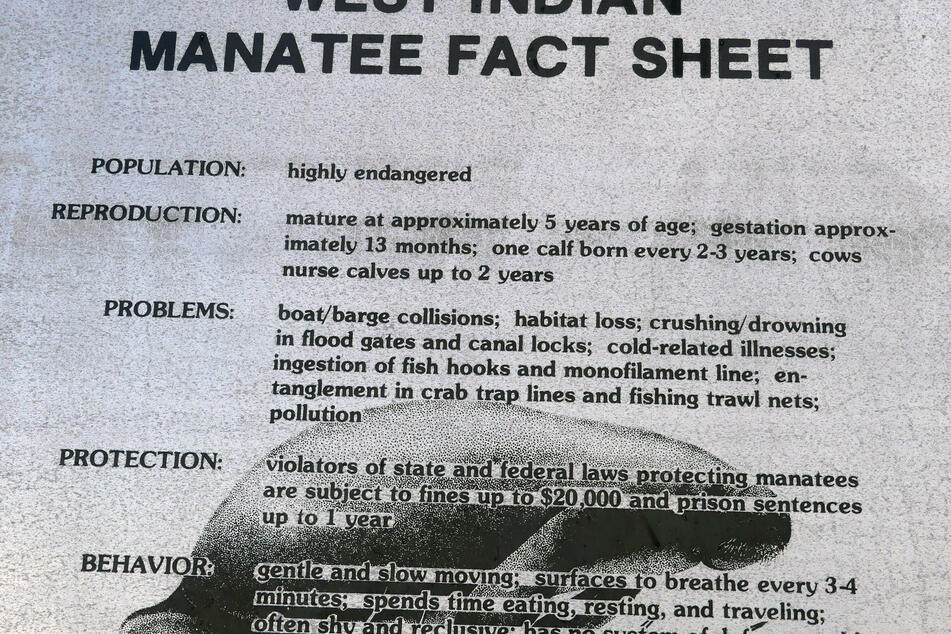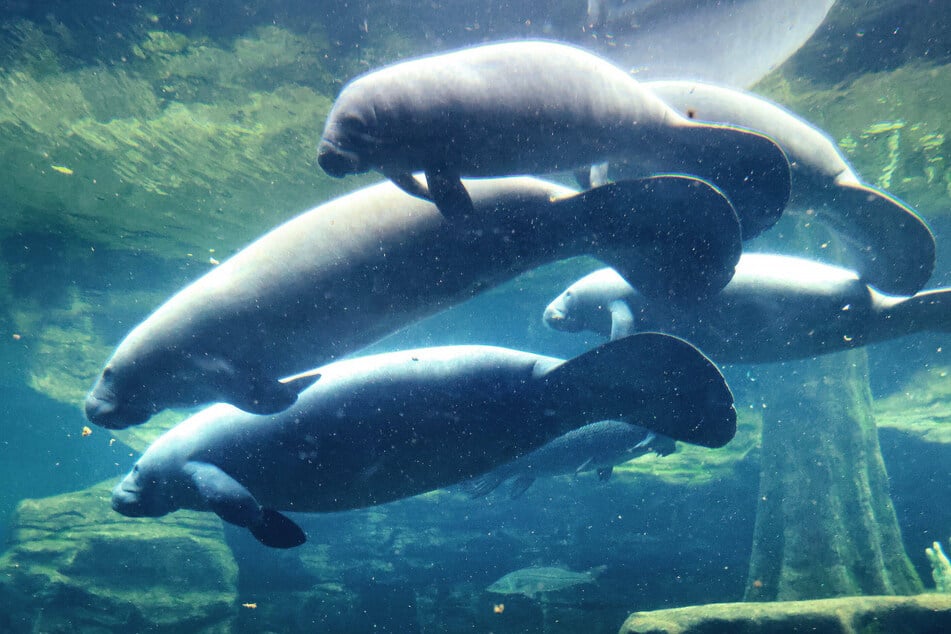Holy sea cow! Florida's manatees need help as die-off reaches record numbers
Brevard County, Florida - Manatees are starving in Florida, so state and wildlife agencies are considering an unprecedented measure: supplemental feedings.

More than 1,000 manatees have died so far this year in Florida, a grim milestone that represents more than 10% of the population in the entire state. Most of the deaths are happening in Brevard County, where Indian River Lagoon provides an important refuge for the mammals to gather to escape cold water temperatures during winter months. Pollution and persistent algae blooms have killed off seagrass beds in the region in recent years, leaving manatees without enough of their primary source of food to make it through the winter.
State and federal wildlife agencies have set up a joint team to manage the emergency response and plans are being drawn up to provide manatees in the Indian River Lagoon area with just enough food and water so they don’t starve. The only thing missing is the approval from the US Fish and Wildlife Service because it’s illegal to feed manatees according to federal and state law.
"We are considering a pilot program to do some supplemental feeding," said Rodney Barreto, chairman of the Florida Fish and Wildlife Conservation Commission (FWC). "We continue to rescue manatees, and we want to be able to rescue even more during this emergency," he told the Miami Herald.
Barreto said he met for two hours on Thursday with Shannon Estenoz, Department of the Interior assistant secretary for fish and wildlife and parks, and Pedro Ramos of the National Park Service, who serves as superintendent for Everglades and Dry Tortugas national parks. They discussed water-quality issues but also possible measures to improve the chances of survival for manatees this winter, he said.
FWC said earlier this week that 1,003 manatees died so far this year, compared with 498 last year and 452 in 2019.
Officials scrambling to help

The emergency response to the unusual mortality, which triggered what the federal wildlife agency calls an Incident command system, aims to make rescue operations more efficient and better funded, the agencies said in a statement on Thursday.
"By now it’s already getting colder and manatees are congregating near the Cape Canaveral power plant and other areas in Indian River Lagoon where they always go for the winter," said Patrick Rose, executive director of the Save the Manatee Club. "Our hope has been that right now we would have been picking several places and providing some supplemental food for them within the area. Before they get to a state of malnutrition that is irreversible."
Rose said that government agencies and partners must test what food manatees will accept because nothing like this has ever been done in Florida. Transporting algae and nuisance aquatic vegetation to the area could be an option, as manatees could in theory get by on those plants. Agriculture-based greens could also be used, Rose said.
"But we need to test all that, we don’t know what foods they will accept. When you put lettuce in an estuarine environment, it’s going to wilt faster. So that may not work at all, we may need to use cabbage," he said.
Another urgent step in the emergency response efforts is to expand the space available for rehabilitation. The joint team set up by the agencies will help address that, FWC and the Fish and Wildlife Service said in a statement.
Man-made pollution and development among culprits

But water management structures and development have cut off much of their access to other traditional wintering areas. Often manatees end up in polluted man-made canals that don’t provide enough food and expose them to boat traffic.
Habitat loss is a key threat that is only getting worse, Rose said. Natural springs in central and northern Florida provide wintering refuges, but as springs have been developed or access cut off, the giant mammals began congregating near warm-water discharges from power plants.
That’s why manatees need more protection.
"We’re hoping this will be a wake-up call for all of Florida and for the federal agencies," he said.
More funding needed

Environmentalists are pushing for the re-listing of manatees as an endangered species. Several conservation groups are trying to convince Congress to pass the Manatee Protection Act of 2021, which would designate the West Indian manatee as endangered and trigger more habitat protections for the mammals.
The sea cow, a distant relative of the elephant, was removed from the endangered species list in 2017 and down-listed to "threatened" after evidence that populations were recovering. But environmentalists say wildlife managers should not relax protections to give manatees a chance at surviving climate change and population growth challenges.
In October, FWC said it was asking legislators for nearly $7 million in the next fiscal year, as wildlife officials focus on finding solutions for Florida’s degraded waters.
In the new funding request, the commission is asking for $3 million to restore and enhance lakes, rivers, springs and estuarine habitats and $2.95 million to expand the Manatee Critical Care Network. Another $717,767 is being sought to increase manatee rescue efforts. Lawmakers will consider the requests during the 2022 legislative session, which starts in January.
Governor Ron DeSantis on Tuesday announced a $1.51 billion proposal for environmental spending that included $175 million for targeted water-quality improvements and $35 million to increase water-quality monitoring and to fight algae blooms.
Cover photo: IMAGO / ZUMA Wire

